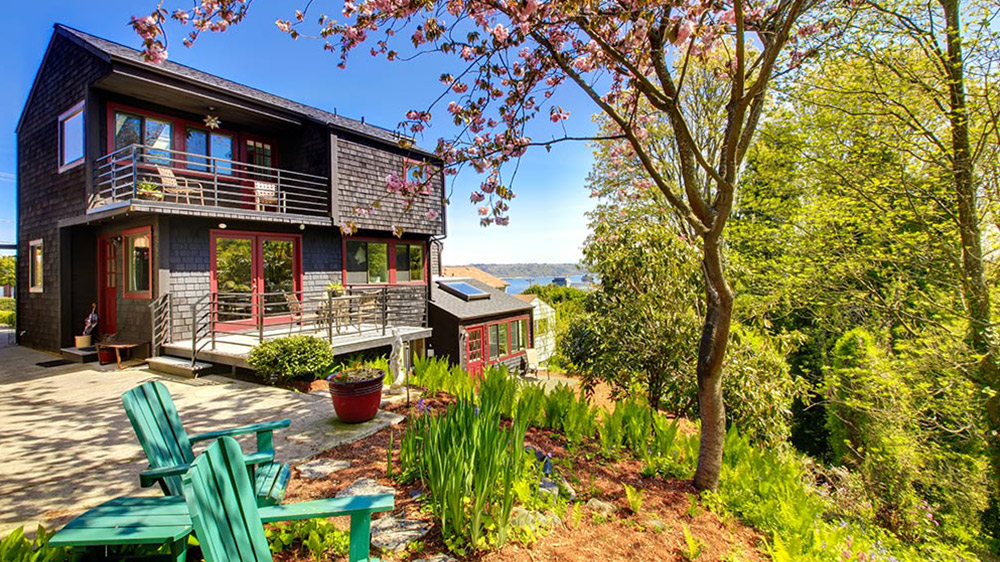A hot real estate market can seem like the answer to your prayers if you’re ready to sell. And in many parts of the country, homes are selling at a faster rate in 2016 than in 2015, says Ralph McLaughlin, Trulia’s Housing Economist.
To prepare your home for sale in a competitive market, it’s important to understand the definition of a “hot market.” “We define a ‘hot market’ as one where most homes sell faster than two months,” says McLaughlin. Inventory is a major factor in creating hot markets: Where there are fewer homes on the market, the demand rises, and homes typically stay on the market for a shorter amount of time. For example, Colorado Springs, CO, has experienced a large drop in available homes for sale in 2016, coupled with a faster turnaround in homes for sale, making the market extremely competitive.
Yes, it’s great to own a home in a seller’s market, but don’t jump for joy just yet. There are also some potential downsides you’ll need to consider before listing your home for sale. Here are five scenarios in which a seller’s market can actually be problematic for sellers: Heed the following tips to help ease the burden.
1. From “For Sale” to “Sold”
In a hot market, it’s possible for your house to sell superfast — even while you’re still hunting for your new house. Unless you plan to become an RV enthusiast and roam the country, you’ll probably need to buy another house. Sure, some savvy sellers find the house they want before they list their current house for sale. But if you’re buying in a seller’s market, you’ll be competing with all those other buys when you’re hunting for your next home.
“I always advise my sellers-turned-buyers to have a backup plan, such as temporary housing,” says Christine Lutz, a Chicago, IL, real estate broker. “It’s better to move twice than to feel rushed into a purchase.” Another option is to consider a lease-back, says Gary Wheeler, a California real estate agent with Willis Allen. Your buyers will need to agree to this plan, but if they do, you can rent your house back from the new owners during the lease-back period while you continue to look for another home.
2. The appraisal falls short
Your hot market is so blazing hot that people are offering more than asking price. Ka-ching? Perhaps. But brace yourself: If the house appraises low, “The buyer may walk away,” says Kelly Hager, a Missouri real estate agent. In this case, you can try renegotiating the deal or pay for a second appraisal.
3. Bad offers all around
During a buying frenzy, some buyers make promises they can’t keep. “By not vetting offers, sellers may sit in a contract just to have it terminate three weeks later,” says Sarah Bowles, a Denver, CO, real estate agent. Then, when buyers see that your house has been sitting for several weeks in a hot market, they wonder what’s wrong with the house. Avoid this problem by ignoring all offers that don’t come with a mortgage preapproval.
4. Trying to beat the 1031 clock
Section 1031 of the U.S. tax code lets you sell one investment property and buy another investment property without paying tax on the sale. The catch? The clock is ticking. You need to identify a property to buy within 45 days.
In a seller’s market, “Sellers can find themselves in tough competition to buy a replacement property in the time needed to qualify the exchange to defer taxes,” says Crystal Stranger, author of The Small Business Tax Guide. But you can relax a little — you just have to identify the property in 45 days; you have 180 days to close.
5. Your big ego
Selling your home in a competitive market doesn’t mean you’ll automatically get offers for more than your asking price. “The biggest problem I see with sellers in a seller’s market is being overly optimistic about price,” says Bruce Ailion, an Atlanta, GA, real estate agent.
When a reasonable offer from a strong buyer comes in, the sellers who expect extravagant offers often turn it down. What happens then? “The property remains on the market, becomes stale, and ultimately sells for less than the first strong offer,” says Ailion.
Whether or not you’re selling your home in a hot real estate market, it’s important to recall the basic tips of selling — and not get carried away with how many buyers should be interested in your home. Ralph McLaughlin suggests remembering the following tips when selling in a hot market:
- Inexpensive homes sell fastest.
- The market picks up in the spring and dies down between August and October, extending through the winter. (The exception is vacation homes in hot climates, such as Arizona and Florida, where the market stays strong during winter.)
- FHA loans, although expensive, allow people to buy a home with a down payment of as little as 3.5%.


